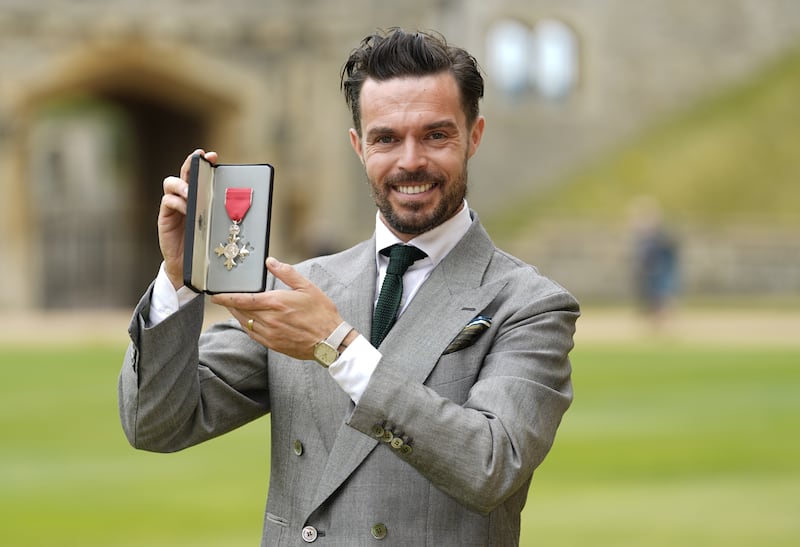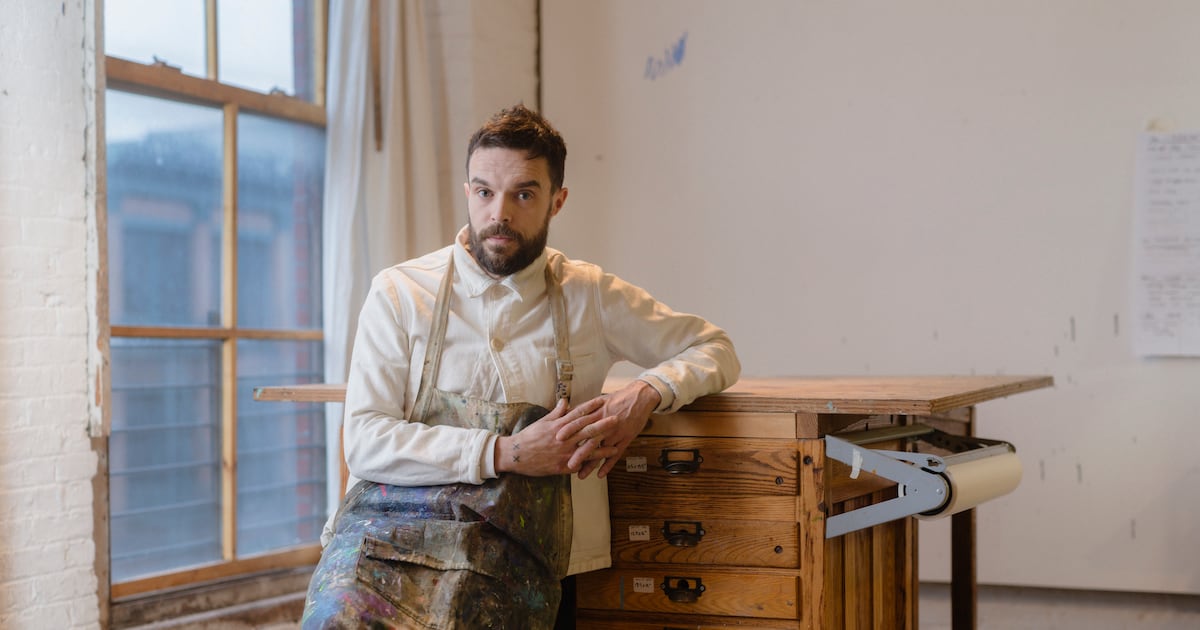I was born in Port Headland, in western Australia, a tiny little town that most people have never heard of. My mum and dad had decided to get out of Belfast in the mid-1970s, particularly after Bloody Friday, so they were giving Australia a go. About six months after I was born, my mum was showing the first signs of what was later diagnosed as multiple sclerosis, so they moved back to Northern Ireland.
My mum and dad did a great job of trying to shield us from the worst of what was happening [in 1970s and 1980s Belfast]. My memories are of playing football on the streets, digging holes, climbing trees and doing a lot of drawing. I grew up with three brothers. It was a case of: go out and play until the street lights come on. We always knew where we could go, and where we should never ever go.
Samuel Johnson said patriotism is the last refuge of the scoundrel. I remember being quite confused about what to call myself, having an Australian passport, an Irish passport and a British passport. [Calling myself] British never felt right, but I remember getting very confused when Northern Ireland were playing the Republic of Ireland in a qualifier and being told that as a Catholic, you’re supposed to go for the visiting team rather than the home team.
[ Oliver Jeffers: Before my son, I wrote my children’s books for myselfOpens in new window ]
I always remember my dad saying you won’t really understand here until you see it from somewhere else. And he was absolutely right. My main studio was in New York for 17 years, and then we travelled with the kids before they were going to start school. We got as far as Japan in February 2020, when Covid hit. We ended up back in Northern Ireland. We thought we would just retreat there, but Covid kept dragging on, and we thought, Okay, we’re going to put the kids in school here. By that stage we recognised what a good idea it was to be surrounded by family, and green space, which is not something there’s an awful lot of in Brooklyn.
When I moved to New York, I remember trying to explain to people that the island of Ireland is divided in two, and the top part is owned by the island next door, and explaining the difference between Great Britain, the United Kingdom, and the British Isles, and realising that even British, English, Scottish and some Irish expats didn’t know, or really care, about the division and identity crisis that was going on. It seemed very tragic. It was like: there we are, fighting – generations of violence – and for what? No one really gives a crap.
The first book that I made for my son Harland, Here We Are, was about what it’s like to suddenly show up on Earth as a new arrival. In the act of making it I suddenly realised that the way I’ve been talking about Northern Ireland from the distance of New York was not unlike the way that astronauts talk about looking at Earth from the distance of the moon. That overview, the perspective that came with that, it was like: what is truly important here?
At first glance, my latest book, I’m Very Busy, is about forgetting someone’s birthday and then pretending that you didn’t. But it’s also about this funny notion of how it is that we choose to spend our time. Everybody is always busy – no matter what. People say, I don’t have time, but I think when you look deep down, time is the only thing that you do have, truly. When my mum was in the hospital later in life, we got talking to this ICU nurse. She had seen a lot of people at the end of life, and she said people regret only what they didn’t do, not what they did do. Nobody ever wished they spent more time at work.
 Oliver Jeffers after being made a MBE at a ceremony at Windsor Castle. Photograph: Andrew Matthews/PA
Oliver Jeffers after being made a MBE at a ceremony at Windsor Castle. Photograph: Andrew Matthews/PA
In 2021, when I got a call to ask would I accept an MBE [for services to the arts], I was like Oh, wow, right, flip. This sort of question has never crossed my mind – I never thought I would have been a contender. I said actually, let me ask a few people. One of the people I asked was my uncle Gerard, who always had a hard time with the notion of saying “Northern” Ireland. I remember saying: they’ve offered to bestow this upon me, what do you think? Help me wrap my head around this. And he goes: absolutely take it. The arts do not get nearly enough attention. You can do way more with this than by refusing it. A few people said something similar, and so I was like: you know what, maybe you’re right.
[ Oliver Jeffers: ‘I’ve got my wife’s bite marks tattooed on my finger’Opens in new window ]
I was raised Catholic. I did the whole thing of being an altar boy and everything. My wife was raised Protestant. If we met 10 years prior, I don’t know if that relationship would have been able to flourish – it certainly would have been discouraged. In the course of those 10 years after the [Belfast] Agreement, those attitudes lightened an awful lot.
Whenever we identify ourselves by the notion of nations, especially if there are borders involved, there’s something sort of jagged and sharp and hard and uninviting about that. Whereas culture seems to be a celebration of place and belonging. It’s much more about the way we dress, the music we listen to, the food we eat. It seems much more inviting. And so culturally, I absolutely feel Irish, but I do normally sort of try to almost skirt around the question of where are you from?
In conversation with Niamh Donnelly. This interview is part of a series about well-known people’s lives and relationship with Ireland. I’m Very Busy: A (nearly forgotten) Birthday Book by Oliver Jeffers is published by HarperCollins Children’s Books
